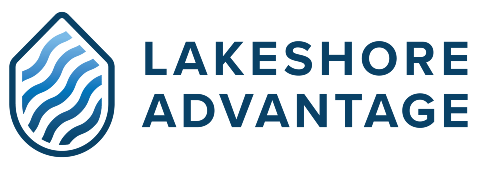Analysis of more than 120 Ottawa, Allegan County business leader interviews unveils assets and opportunities for lakeshore region economy
ZEELAND, Mich. – Primary employers in Ottawa and Allegan Counties are nimble and overcoming talent shortages with automation, according to a Lakeshore Advantage report released today. West Michigan’s Lakeshore Region 2023 Industry Trends Report is the analysis of more than 120 local business executive interview responses. Executives across the two counties were interviewed from June 2022 through May 2023. A majority—more than sixty percent—reported feeling somewhat or very prepared to adopt ‘smart’ technologies.
“Manufacturing is the backbone of this economy” said Jennifer Owens, president of Lakeshore Advantage. “Companies that are investing in technology are growing. We are focused on helping small to mid-sized manufacturers understand the tools and resources available to leverage so they can stay competitive and create safe, good-paying jobs.”
The report features primary research analysis and secondary data which shows key points about the economic health of the region. Of those interviewed:
- 52% said they plan to expand in the next three years;
- 98% reported an increasing or stable market share;
- 91% reported total company sales as increasing or stable;
- 86% shared that they plan to introduce new products, services, and/or capabilities in the next two years;
- 70% of companies reported tuition reimbursement offerings compared to a national average of 48%; and
- This year, more businesses reported operating at regular hours as opposed to operating with overtime or decreased hours.
The lakeshore region has a concentrated cluster of automation solutions providers and a talent pipeline that supports the growing automation job market. The number of automation engineers in the region has increased by forty percent over the last five years and the occupation is projected to grow an additional fifteen percent in the next five, according to data produced by Lightcast. These providers support West Michigan’s heavily manufacturing-based economy (23%, compared to 16% for the rest of the state, according to the Michigan Center for Data & Analytics), as well as manufacturers worldwide.
When asked about adopting smart technologies, cost and lack of staff expertise were identified as the top two barriers. An additional top barrier to growth reported by employers was supply chain disruptions. The report also summarizes actions taken by area nonprofits and local units of government in response to other issues posing challenges to the region’s economy, including:
- Housing Next’s efforts to raise and leverage millions of dollars across West Michigan for workforce housing;
- The Outdoor Discovery Center’s Ottawa County American Rescue Plan Act (ARPA) funding to increase childcare capacity by 1,000 spots over the next three years;
- Allegan County’s commitment of ARPA funding toward expanded broadband, matched by provider, 123Net®, and supplemented by Michigan ROBIN grant funding.
“Our job is to ensure that current and future generations want to live and work in the lakeshore region” said Vice President of Business Solutions for Lakeshore Advantage, Amanda Murray. “Our focus is on primary employers. They make a choice to be in this community and we need to keep them healthy and growing.”
Along with the report, Lakeshore Advantage presented best-use stories of smart technology applications by small- and mid-sized manufacturers in the region during a presentation to local business and government leaders on Wednesday, September 13.
The full report can be viewed HERE.



